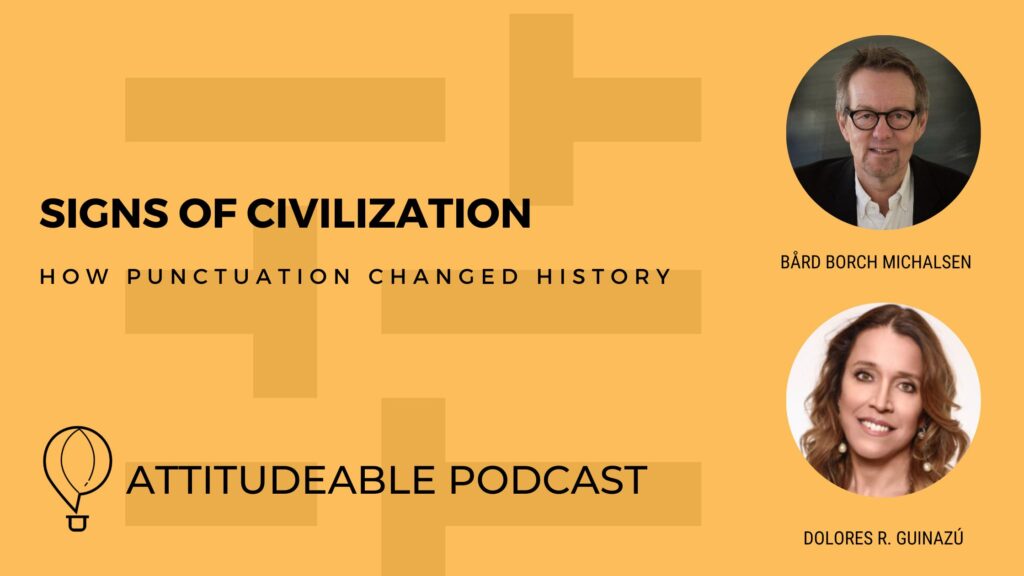How punctuation changed history
A conversation with Bård Borch Michalsen
In the Southern Hemisphere Spring has arrived in the International Translation Month! September is here! And also a new season of the Podcast is back! And a brand new episode! Happy Autumn for our friends living in the Northern Hemisphere!
Bård Borch Michalsen is the author we interviewed with the release of his latest book in English and in Spanish. He has other books written in his mother tongue. Bård has worked as a journalist and editor in several Norwegian newspapers. He now teaches professional communication at UiT / The Arctic University of Norway.
With the art of printing, reading books moved from being an act meant to be performed by priests and other authorities into an individual, even private, activity. This change helped spark the Renaissance, the Reformation, the Enlightenment and the Industrial Revolution. And punctuation played an important role: As long as texts were read out loud by experts only there was no use for punctuation to mark pauses, full stops or questions.
And thus, the author holds punctuation – the period, the comma, the exclamation mark, the question mark and the semicolon – helped shape modern day Europe as we know it.
Signs of Civilization tells this rich cultural history of punctuation. It also provides a practical introduction to the rules of punctuation, adapted to our digital age.
Bård Borch Michalsen
‘Punctuation is not only an important part of our language code; an advanced system of punctuation has been a driving force in our entire Western Civilisation. Nothing less.’
With the invention of printing, reading books moved from being an act only performed by priests and aristocrats into an individual, even private, activity. This change helped spark the Renaissance, the Reformation, the Enlightenment and the Industrial Revolution – in which punctuation played a crucial role. As long as texts were read out loud only by an educated elite there was no need for punctuation to mark pauses, full stops or questions.
So punctuation – the full stop, the comma, the exclamation mark, the question mark and the semicolon – helped shape modern-day Europe as we know it.
The author´s axiom is the latin phrase: CARPE DIEM. How relevant to our days! SEIZE THE DAY!
Bård Borch Michalsen
Do what it takes and BE in the present moment. Do not wait for another day. CARPE DIEM! Thanks, dear Bård for your contribution and your time to share your research!
Attitudeable on social media:
Twitter: @liftvalue
IG: @liftvaluetranslations
www.liftvalue.com
